Discover Know Your Enemy
Know Your Enemy

248 Episodes
Reverse
This episode originally aired November 17, 2025 on Patreon — we're unlocking it as a holiday treat. If there's a Trump-era topic that manages to fascinate without being entirely depressing, it's probably the ongoing arguments about architecture that his ascension has occasioned. Proponents of a RETVRN to the architectural ideals of ancient Greece and Rome are prominent in MAGA circles; partisans of a neo-classical revival populate government commissions, and their prescriptions find expression in various executive orders again. To understand who these people are, what their movement wants, and the kernel of truth in their grievances, we talked to architectural critic and proprietor of McMansion Hell Kate Wagner. We start by analyzing Trump's ballroom and the demolishing the East Wing of the White House — the perfect way into MAGA architecture and the mind of their Beautiful Builder himself, Donald J. Trump.Sources:Kate Wagner, "Duncing About Architecture," New Republic, Feb 8, 2020— "Trump Will Not Make Architecture Great Again," The Nation, Jan 7, 2025— "The Real Problem With Trump’s Cheesy Neoclassical Building Fetish," Feb 12, 2025— "what the fuck are we doing anymore," The Late Review, Jan 9, 2025.— "Wrecking Ballroom," The New York Review of Architecture, Dec 17, 2025.Charlie Nash, "Trump Admits He Could've Built Ballroom Without Destroying the East Wing, But 'It Looked Like Hell,'" Mediate, Nov 10, 2025Jonathan Edwards & Dan Diamond, "Trump hires new White House ballroom architect," WaPo, Dec 4, 2025. ...and don't forget to subscribe to Know Your Enemy on Patreon for access to all of our bonus episodes!
Listen to the rest of this premium episode by subscribing at patreon.com/knowyourenemy.As the end of the year approaches, we wanted to look back at another year of trying to understand the American right—what we got wrong, what we got right, and what to expect in 2026. The conversation begins with the cracks showing in Trump's coalition, his plummeting approval ratings, and the possibility that Charlie Kirk really was helping hold the marriage of MAGA and the GOP together, then consider if we should have seen this coming (or not) and what it might say about our understanding of Trump, Vance, Kirk, Musk, and others we've considered on KYE in 2025.Sources:Christopher Flavelle, "How Biden Ignored Warnings and Lost Americans’ Faith in Immigration," New York Times, Dec 7, 2025Bilal Baydoun, "What Musk's DOGE Really Cut: Trust, Safety, and Democracy," Roosevelt Institute, May 29, 2025Jake Tapper & Alex Thompson, Original Sin: President Biden's Decline, Its Cover-up, and His Disastrous Choice to Run Again (2025)"Jill Lepore on Nationalism, Populism, and the State of America," EconTalk, April 15, 2019Ryan Burge, "Religion Has Become A Luxury Good For The Middle Class, Married College Graduate With Children," ReligionUnplugged, July 12, 2023Matt Dinan, "Permission Structures: How AI-skeptic Professors Can Still Help Students Write Papers," Prefaces, Dec 10, 2025
Given the not-terribly-uplifting streak of episodes we've had lately, we thought it was time for a Know Your Enemy movie night, and were joined by the podcast's intrepid producer, Jesse Brenneman, for a conversation about Paul Thomas Anderson's 2025 film, One Battle After Another. Its tagline—"When their evil enemy resurfaces after 16 years, a group of ex-revolutionaries reunite to rescue the daughter of one of their own"—suggests why all three of us absolutely loved it. We discuss: the film's relationship to the contemporary United States, and what it might reveal about our political situation; how it portrays both the left and the right; the family drama at the heart of the film, and the connection between origin and identity, personally and politically; the way Ronald Reagan haunts a surprising number of its scenes; and more! Spoiler alert: we offer a quick plot summary for those who haven't (yet!) seen One Battle After Another, but that does mean certain surprises will be spoiled for you.Sources:Sam Adler-Bell, "The Fantasy of Assassination Culture," New York Magazine, Nov 1, 2025Armond White, "There Will Be Bloodlust in One Battle After Another," National Review, Sept 26, 2025Richard Brody, "The Real Battle of 'One Battle After Another,'" New Yorker, Oct 7, 2025...and don't forget to subscribe to Know Your Enemy on Patreon for access to all of our bonus episodes!
Listen to the rest of this premium episode by subscribing at patreon.com/knowyourenemy.Should you try to improve your friends or leave them be? Do friendship and politics mix? Is friendship about virtue or delight? In 2023, we were interviewed by Andrew Elrick, now a professor at Marist University, for a documentary podcast he was making about men and friendship. (Two of our favorite topics!) That podcast never came to fruition, but Andy was kind enough to share this audio with us, and now we're sharing it with you: a conversation about friendship — Matt and Sam's in particular — politics, and podcasting. Enjoy!Further Reading:Aristotle, Nicomachean Ethics, (350 BCE) Michel de Montaigne , “On Friendship” from The Essays of Michel de Montaigne (1580) Judith Shklar, “On Political Obligation,” (2019)Allan Bloom, Love and Friendship (1993) Michael Oakeshott, “On Being Conservative,” (1956)Dewey, Democracy and Education (1916)Andrew Elrick, "Friendship is a Dangerous Thing," Game Stories, Nov 9, 2025.
Laura K. Field's Furious Minds: The Making of the MAGA New Right, published earlier this month, is a book we simply had to discuss. Listeners to this podcast will recognize its cast of characters—conservative intellectuals like Patrick Deneen, Michael Anton, John Eastman, Adrian Vermeule, and Harry Jaffa, among others—whose ideas and influence Field carefully categorizes and evaluates, bringing order to an unruly decade of intellectual history. Topics include: Leo Strauss and the problem of great teachers; the use and abuse of grand narratives by the right; how the Claremonters went all in on Trump; the permission given by postliberals to some of the nastiest impulses on the right; and more!Sources:Laura K. Field, Furious Minds: The Making of the MAGA New Right (2025)— "Revisiting Why Liberalism Failed: A Five-Part Series," Niskanen Center, Dec 21, 2020Patrick Deneen, Why Liberalism Failed (2018)— Regime Change: Toward a Postliberal Future (2023)Matthew Sitman, "Liberalism and the Catholic Left," Commonweal, Dec 3, 2018Publius Decius Mus/Michael Anton, "The Flight 93 Election," Claremont Review of Books, Sept 5, 2016Adrian Vermeule, "Integration from Within," American Affairs, Spring 2018The Editors, "The Fight is Now," The American Mind, Nov 5, 2020Anemona Hartocollis, "On Campus, Trump Fans Say They Need 'Safe Spaces,'" New York Times, Dec 8, 2016Further Listening: KYE: "Rise of the Illiberal Right," July 12, 2019. KYE: "Midnight in the Garden of American Heroes (On West Coast Straussians)," Feb 11, 2021. KYE: "Unraveling Allan Bloom and Saul Bellow," June 21, 2021. KYE: "The Afterlife of January 6," July 19, 2021....and don't forget to subscribe to Know Your Enemy on Patreon for access to all of our bonus episodes!
Listen to the rest of this premium episode by subscribing at patreon.com/knowyourenemy.If there's a Trump-era topic that manages to fascinate without being entirely depressing, it's probably the ongoing arguments about architecture that his ascension has occasioned. Proponents of a RETVRN to the architectural ideals of ancient Greece and Rome are prominent in MAGA circles; partisans of a neo-classical revival populate government commissions, and their prescriptions have found expression in several executive orders. To understand who these people are, what their movement wants, and the kernel of truth in their grievances, we talked to architectural critic and proprietor of McMansion Hell Kate Wagner. We start by analyzing Trump's ballroom and the demolishing the East Wing of the White House — the perfect way into MAGA architecture and the mind of their Beautiful Builder himself, Donald J. Trump.Sources:Kate Wagner, "Duncing About Architecture," New Republic, Feb 8, 2020— "Trump Will Not Make Architecture Great Again," The Nation, Jan 7, 2025— "The Real Problem With Trump’s Cheesy Neoclassical Building Fetish," Feb 12, 2025— "what the fuck are we doing anymore," The Late Review, Jan 9, 2025.Charlie Nash, "Trump Admits He Could've Built Ballroom Without Destroying the East Wing, But 'It Looked Like Hell,'" Mediate, Nov 10, 2025
This episode isn't focused on a single topic or text, but rather just wanting to have a wide-ranging conversation with our guest, Peter Beinart, editor-at-large of Jewish Currents and author of the recent book, Being Jewish After the Destruction of Gaza: A Reckoning. We start by discussing the appalling wave of Islamophobic attacks against Zohran Mamdani during the last weeks of his victorious mayoral campaign, the short-sighted embrace of such bigotry by too many American Jews and Jewish institutions, the current iterations of anti-semitism roiling the right, religious tradition and progressive politics, changing your mind, and more.Listen again: "Elon Musk, the Jews, and the ADL" (w/ Mari Cohen, Alex Kane, & Peter Beinart), Sept 26, 2023Sources:Zohran Mamdani, "My Message to Muslim New Yorkers—and Everyone Who Calls This City Home," YouTube, Oct 24, 2025Peter Beinart, Being Jewish After the Destruction of Gaza: A Reckoning (2025)Mark Mazower, On Antisemitism: A Word in History, (2025)Arwa Mahdawi, "Mamdani's Mayoral Race was Marred by Unhinged Islamophobia. It's Not Going Away Soon," The Guardian, Nov 6, 2025Romanus Cessario, O.P., "Non Possumus," First Things, Feb 1, 2018George Washington, "To the Hebrew Congregation in Newport, Rhode Island," August 18, 1790...and don't forget to subscribe to Know Your Enemy on Patreon for access to all of our bonus episodes!
This is a different kind of episode than is typical; there's no book, no central text, not even a single, central event that guides the conversation. Instead, we begin with a few recent news items—speculation about Trump 2028, Speaker Mike Johnson's refusal to swear in a Democratic congresswoman, the stunning abdication of Congress as the shutdown continues, and, incredibly, a secretive billionaire and Mellon heir donates over a hundred million dollars to pay the military, among others—and then lay out our profound worries about Trump ruling by decree, and the coming of MAGA-style Caeserism. How and when might that occur? We discuss troubling signals the Trump administration is sending about upcoming elections, and especially the 2026 midterms; the ticking time bomb that is the Insurrection Act; how the right thinks about executive power (then and now), and more.Sources:Peter Rothpletz, "Trump's Third Term?" Zeteo/First Draft, Oct 24, 2025Dana Milbank, "How Reactionary is MAGA? Try the First Century B.C.," Washington Post, Sept 7, 2022Steve Bannon interview with The Economist, Oct 23, 2025 (YouTube)Shawn Hubler & Laurel Rosenhall, "Justice Department Will Monitor Elections in California and New Jersey," New York Times, Oct 24, 2025Steve Contorno & Ashley Killough, "Frustrated Arizonans Have Waited More Than a Month for Their New Congresswoman to be Seated," CNN, Oct 25, 2025Yoni Applebaum, "America's Fragile Constitution," The Atlantic, Oct 2015Abraham Lincoln, "Speech to the Young Men’s Lyceum of Springfield," Jan 27, 1838Bob Bauer & Jack Goldsmith, "Here’s What Trump Could Unleash by Invoking the Insurrection Act," New York Times, Oct 18, 2025Damon Linker, "The Surest Path to Dictatorship: A Quick Plug for a Short Primer about the Insurrection Act," Notes from the Middleground, Oct 18, 2025"Discussing Caesarism," New Founding Podcast, Oct 21, 2022. Harvey Mansfield, Taming the Prince: The Ambivalence of Modern Executive Power (1989)James Burnham, Congress and the American Tradition (1959)Garry Wills, Bomb Power: The Modern Presidency and the National Security State (2010)...and don't forget to subscribe to Know Your Enemy on Patreon for access to all of our bonus episodes!
Listen to the rest of this premium episode by subscribing at patreon.com/knowyourenemy.The theme of this rank punditry episode is Getting in Trouble on the Internet, and we begin with the frankly unsurprising story of the Young Republican Hitler group chats, then move on to a longer discussion about Democratic candidate for the U.S. Senate in Maine, Graham Platner, and the revelations about controversial past posts on Reddit about guns and fighting fascism, rural white voters, his ideological allegiances, and more—all recorded before the news of his tattoo, now covered over, of a Nazi skull-and-bones insignia. Along the way we talk about what makes a change of mind and heart persuasive, how grace comes to us in our struggles, if Platner is Fetterman 2.0, and the class dimension of all these debates, and finally close with a relatively hopeful take on the "No Kings" protests last weekend.Sources:Jason Beeferman and Emily Ngo, "'I Love Hitler': Leaked Messages Expose Young Republicans' Racist Chat," Politico, Oct 14, 2025Julianne McShane, “No One in the GOP Hitler Chat Was a ‘Kid’: We checked. Sorry, JD Vance," Mother Jones, Oct 15, 2025Adam Wren, Erin Doherty & Jessica Piper, "Maine Senate Candidate Promoted Violent Political Action in Since-Deleted Online Posts," Politico, Oct 16, 2025Lauren McCauley, "Unearthed Reddit Comments Present First Stumble in Platner’s Rise," Maine Morning Star, Oct 17, 2025Kimberlee Kruesi & Patrick Whittle, "Maine Senate Candidate Platner Says Tattoo Recognized as Nazi Symbol Has Been Covered," Associated Press, Oct 23, 2025Ben Terris, "The Hidden Struggle of John Fetterman," New York, May 2, 2025Christian Wiman, My Bright Abyss: Meditation of a Modern Believer (2013)
This episode is the second in our occasional series on important, controversial, or unusually relevant conservative texts from the recent past. Here we take up Charles Murray's 2012 book, Coming Apart: The State of White America, 1960-2010. With its focus on the ascendence of a new "cognitive elite," cultural divides, and the pathologies afflicting working and lower class whites, the book might seem prophetic of the Age of Trump — but the reality is more complicated. Murray's oversights, it turns out, are as interesting as his insights. We walk listeners through Murray's account of how America "came apart," take the test he provides to see how thick our class/cultural bubbles are, then rip into the moralizing prescriptions with which he concludes the book. Along the way we discuss Murray as an emblematic success story of the right-wing welfare state and intellectual pipeline, revisit his obsession with race and IQ, and more!Sources:Charles Murray, Coming Apart: The State of White America, 1960-2010 (2012)— Human Accomplishment: The Pursuit of Excellence in the Arts and Sciences, 800 B.C. to 1950 (2003)— Losing Ground: American Social Policy, 1950-1980 (1984)Jason DeParle, "Daring Research or 'Social Science Pornography'? Charles Murray," New York Times, Oct 9, 1994Jane Mayer, Dark Money: The Hidden History of the Billionaires Behind the Rise of the Radical Right (2016)Pew Research Center, "Religious Landscape Study," Feb 26, 2025Quinn Slobodian & Stuart Schrader, "The White Man, Unburdened," The Baffler, July 2018"Do you live in a bubble? A quiz." PBS Newshour, Mar 24, 2016. ...and don't forget to subscribe to Know Your Enemy on Patreon for access to all of our bonus episodes!
Listen to the rest of this premium episode by subscribing at patreon.com/knowyourenemy.Before embarking on a spirited bout of rank punditry, we take a step back and talk about the Staple Singers, Hannah Arendt's Origins of Totalitarianism, Tocqueville's Democracy in America, Zohran, and giving a damn about both your "fellow man" and democracy. Then, we walk you through the latest catalogue of horrors: Hegseth's lame TED talk in front of the generals, the menacing yet comically inept dimestore Gestapo that is ICE, the shutdown, and more!Sources:Alexis de Tocqueville, Democracy in America (1835, 1840)Hannah Arendt, The Origins of Totalitarianism (1951)Jasper Craven, "Battle of the Sexes," The Baffler, Sept 2025"Deafies for Zohran" (YouTube)"Things Can Change" (X)
To try to understand both the power and strangeness of the Charlie Kirk memorial—one part evangelical worship service, one part MAGA rally—we turned, of course, to our friend Pat Blanchfield. All three of us stewed in the event's footage, which runs to over four and a half hours, then convened to discuss it. After laying out for listeners what happened at State Farm Stadium in Arizona just over a week ago, replete with clips, we tried to understand how the event aimed to turn death and grief into power by unpacking its imagery, symbols, references, and, of course, how it might play "out there" among Americans not already plugged into the menagerie of seen subcultures on stage. Sources:Charlie Kirk Memorial at State Farm Stadium, Sept 21, 2025 (Fox News on YouTube)— Transcript of President Donald Trump's speech at Kirk Memorial— The story behind the hymn, "It is Well with My Soul" (link)Jack Jenkins, "At Charlie Kirk's memorial, religion, politics and antagonism toward liberals combine," Religion News Service, Sept 22, 2025Amber Phillips, "3 takeaways from the Charlie Kirk memorial," Wash Post, Sept 22, 2025Elizabeth Castelli, Martyrdom and Memory: Early Christian Culture Making, (2004)Gabriel Winant, "On Mourning and Statehood: A Response to Joshua Leifer," Dissent, Oct 13, 2023...and don't forget to subscribe on Patreon for access to all of our bonus episodes!
Listen to the rest of this premium episode by subscribing at patreon.com/knowyourenemy.The assassination of Turning Points USA founder Charlie Kirk on September 10, 2025, seemed to change the landscape of American politics in an instant, inspiring a startlingly unanimous battlecry of vengeance from the conservative movement, the GOP, and the Trump White House. In this episode, Matt and Sam respond to this ominous moment, analyzing Kirk’s legacy, the politics of martyrdom, and the dangers that lurk ahead. Two notes: (1) This episode was recorded on Tuesday 9/16, before some of the administration's specific repressive efforts — e.g. the FCC intimidating ABC into suspending late night host Jimmy Kimmel — had taken place. (2) Matt's sound quality is diminished toward the end of episode because of a technical problem with his mic.
Since the start of the Trump Era over a decade ago, few words have been deployed as often as "democracy": how it's become imperiled, who threatens it, and what to do to defend it. In The Right of the People: Democracy and the Case for a New American Founding, Osita Nwanevu sets out to understand the true meaning of democracy and defend it from its critics, not just on the right but those liberals who doubt the capacity of ordinary voters to determine their country's fate in a complex world. From there, he levels a critique of the Constitution for its myriad democratic deficits, then details what refounding the United States to be genuinely democratic—politically and economically—would require of us.Listen again: "The Wolfe in the White Suit" (w/ Osita Nwanevu), July 5, 2024Sources:Osita Nwanevu, The Right of the People: Democracy and the Case for a New American Founding (2025)— "Conservatism’s Baton Twirler," New York Review of Books, Sept 25, 2025. Sheldon Wolin, Fugitive Democracy: And Other Essays (2016)Michael J. Klarman, The Framers' Coup: The Making of the United States Constitution (2016)Marilynne Robinson, The Death of Adam: Essays on Modern Thought (1998)Walter Lippman, Public Opinion (1922)Publius, Federalist 49 (February 1788)Matthew Sitman, "Will Be Wild," Dissent, April 18, 2023...and don't forget to subscribe on Patreon for access to all of our bonus episodes!
Listen to the rest of this premium episode by subscribing at patreon.com/knowyourenemy.Roman Polanski's 2019 film about the Dreyfus affair, An Officer and a Spy, only recently made it's U.S. "premier," running for a few weeks in August at Film Forum in New York City. When it originally was released, it couldn't find an American distributor (and likewise was shunned by streaming services), a consequence of the MeToo moment meeting Polanski's criminal past—in 1978 he fled to Europe after being indicted for the rape of a 13 year-old girl in the United States. Polanski's past is particularly relevant for his film about the falsely accused Jewish officer in the French military, to whom, in publicity materials circulated when An Officer and a Spy came out in Europe in 2019, the director explicitly compared himself.Of course, we couldn't possibly have had on any other guest than John Ganz to help us understand the politics of the Dreyfus affair, both in 1895 and 2025, and what to make of Polanski's cinematic rendering of it. Topics include: Polanski's life and crimes; Hannah Arendt's treatment of the Dreyfus affair in The Origins of Totalitarianism; anti-semitism in 19th and early 20th century France; the way Polanski largely ignores the political convulsions caused by the Dreyfus affair, instead handling it more as a crime procedural, and why he might have done so; and more.Sources:John Ganz, "Reading, Watching," Unpopular Front, Aug 10, 2025— "Gramscians vs Sorelians," Unpopular Front, Jan 23, 2021— "The Third Republic and Today," Unpopular Front, Jan 27, 2021— "The Century of Rubbish," Unpopular Front, Feb 2, 2021— "From Republic to Reaction," Unpopular Front, Feb 4, 2021David Bell, "An Officer and a Spy," H-France, March 2021Hannah Arendt, The Origins of Totalitarianism (1951)
Devoted Know Your Enemy listeners will recall that, in November 2021, we released a fairly dense, theory-driven episode on Frank Meyer, the Communist from New Jersey whose exploits on behalf of the Party in the UK got him kicked out of the country and back to the United States, where he eventually turned right and became a key figure in the post-war U.S. conservative movement, both as an editor at National Review and an architect of institutions like the American Conservative Union, Young Americans for Freedom, and the Conservative Party of New York. Of course, we had more to say about Meyer, and we're devoting another episode to him, this time focused on the details of his incredible life, thanks to the publication of an extraordinary new biography of Meyer, Daniel J. Flynn's The Man Who Invented Conservatism: The Unlikely Life of Frank S. Meyer. Flynn discovered a trove of never-before-seen papers of Meyer's that range from personal documents (tax returns, Christmas cards from Joan Didion, his dance card from college) to his correspondence with nearly every conservative writer and intellectual of note in the 1950s and 60s. Armed with these files, Flynn offers a vivid portrait of a brilliant, eccentric political life and mind.Listen again: "Frank Meyer: Father of Fusionism" (November 10, 2021)Sources:Daniel J. Flynn, The Man Who Invented Conservatism: The Unlikely Life of Frank S. Meyer (2025)Frank S. Meyer, In Defense of Freedom: A Conservative Credo (Regnery, 1962)F.A. Hayek, "Why I am Not a Conservative," from The Constitution of Liberty: The Definitive Edition (2011)George H. Nash, The Conservative Intellectual Movement in America Since 1945 (Basic Books, 1976)Garry Wills, Confessions of a Conservative (Doubleday, 1979)"Against the Dead Consensus," First Things, March 21, 2019...and don't forget to subscribe on Patreon for access to all of our bonus episodes!
This episode was first published in October 2024, and has been un-paywalled following the death this week, on August 21, of Focus on the Family founder and influential figure on the religious right, James Dobson, at age 89. Subscribe to Know Your Enemy on Patreon to hear more episodes just for subscribers.In this episode, Matt is joined by journalist Talia Lavin to discuss her book, Wild Faith: How the Christian Right is Taking Over America, one of the most fascinating and unique books published on the Christian right during the Trump-era. Lavin takes her subjects seriously, but not uncritically, and especially focuses on the wrecked and ruined lives left in the wake of conservative evangelicalism's more conspiratorial and authoritarian elements, from the Satanic Panic to James Dobson's parenting manual on how to discipline a "strong-willed child" into compliance. Along the way, they talk about the triumph of QAnon, End Times theology, the importance of the New Apostolic Reformation, and more—all with an eye toward how these religious views and practices help explain conservative evangelicals' overwhelming support for Donald Trump.Sources:Talia Lavin, Wild Faith: How the Christian Right Is Taking Over America (2024)— Culture Warlords: My Journey Into the Dark Web of White Supremacy (2020)— "The Sword and the Sandwich" (Talia's newsletter)Listen again:"The Prayers and Prophecies of Pat Robertson," Know Your Enemy, July 17, 2023
A major topic following Donald Trump's victory in the 2024 presidential election has been his gains with racial and ethnic minorities, a trend that's scrambled many people's assumptions about American politics, not least those of anti-racist liberals. Why have minority voters drifted toward Trump, despite his many comments and campaign pledges that demonize or disparage them? To try to understand this phenomenon, we talked to Daniel Martinez HoSang, who has studied the minorities entering the GOP coalition, not only but especially in the MAGA era, including extraordinarily rich interview with people of color on the right attending Turning Point USA conference, CPAC, Trump rallies, following right wing influencers, and more. Sources:Daniel Martinez HoSang, "Inside the Rise of the Multiracial Right," New York Times, July 24, 2025Daniel Martinez HoSang, Wider Type of Freedom: How Struggles for Racial Justice Liberate Everyone, (2023)Stuart Hall, Selected Writings on Race and Difference, (2021)Joseph E. Lowndes & Daniel Martinez HoSang, Producers, Parasites, Patriots: Race and the New Right-Wing Politics of Precarity (2019)Joseph E. Lowndes, From the New Deal to the New Right: Race and the Southern Origins of Modern Conservatism (2008)...and don't forget to subscribe to Know Your Enemy on Patreon to listen to all of our bonus episodes!
Listen to the rest of this premium episode by subscribing at patreon.com/knowyourenemy.Our mailbag runneth over! Unsurprisingly, we received so many excellent questions from subscribers for our most recent episode that we decided to answer even more of them. Once again religion seemed to be on the minds of listeners, and we take up charismatic Christians and the evolution of both the religious right and the Republican Party, as well as the role of Christian Zionism in U.S. policy toward Israel. But that's not all: other topics include leftist theory bros; Roy Cohn, Donald Trump, Jeffrey Epstein, and the politics of sexual blackmail; Gore Vidal at 100, and more.Sources:Hal Lindsey, The Late Great Planet Earth (1970)Daniel G. Hummel, The Rise and Fall of Dispensationalism: How the Evangelical Battle over the End Times Shaped a Nation (2023)Wilson Carey McWilliams, "The Bible in the American Political Tradition," in Redeeming Democracy in America, ed. Patrick Deneen & Susan McWilliams (2011)The Correspondence of Walter Benjamin and Gershom Scholem, 1932–1940, ed. Gershom Scholem (1992)Cedric Robinson, Black Marxism: The Making of the Black Radical Tradition, (1938)Phil Christman, Why Christians Should Be Leftists (2025)Sam Tanenhaus, Buckley: The Life and the Revolution That Changed America (2025)Nicholas von Hoffman, Citizen Cohn: The Life and Times of Roy Cohn (1988)Christopher M. Elias, Gossip Men: J. Edgar Hoover, Joe McCarthy, Roy Cohn, and the Politics of Insinuation (2021)Gore Vidal, United States: Essays 1952-1992 (1993)
It's been nearly a year since we asked our subscribers to send us questions for a mailbag episode—which they did, with remarkable thoughtfulness and intelligence, for our 100th episode back in September 2024. A lot has happened since then (to say the least), so we wanted to once again open up the mailbag and find out what was on the minds of Know Your Enemy listeners, who sent too many excellent questions for just one episode—so, if you like what you hear, consider subscribing on Patreon to listen our next bonus episode when we'll answer even more of them.In this round of listener questions, we take up how much Trump has kept his campaign promises, our favorite bourbons, the politics of Judaism, St. Augustine and original sin, novelists (gay and straight), and more!Sources and further reading:Christopher Isherwood, The Berlin Stories (1945)— A Single Man (1964)Don Bachardy, Last Drawings of Christopher Isherwood (1990)Edmund White, City Boy: My Life in New York During the 1960s and '70s (2009)— A Boy's Own Story (1982)— The Beautiful Room is Empty (1988)— The Farewell Symphony (1997)— The Married Man (2000)Walker Percy, Love in the Ruins (1971)— Lost in the Cosmos: The Last Self-Help Book (1983)Henri du Lubac, Catholicism: Christ and the Common Destiny of Man (1962)Thomas Merton, New Seeds of Contemplation (1949)— Conjectures of a Guilty Bystander (1968)Sam Adler-Bell, "The Father of All Secrets," The Baffler, Dec 2022. — "The Essential John le Carré," NYTimes, Jul 12, 2023.Henry Roth, Call It Sleep, (1930)Javier Marías, A Heart So White, (1995)Helen DeWitt, The Last Samurai, (2000)Percival Everett, Erasure, (2001)...and don't forget to subscribe to Know Your Enemy on Patreon to listen to all of our bonus episodes!



![What We Got Wrong (and Right) about the Right in 2025 [Teaser] What We Got Wrong (and Right) about the Right in 2025 [Teaser]](https://s3.castbox.fm/66/d6/c5/c11f5e273f67373120a402656ae5b1d9db_scaled_v1_400.jpg)

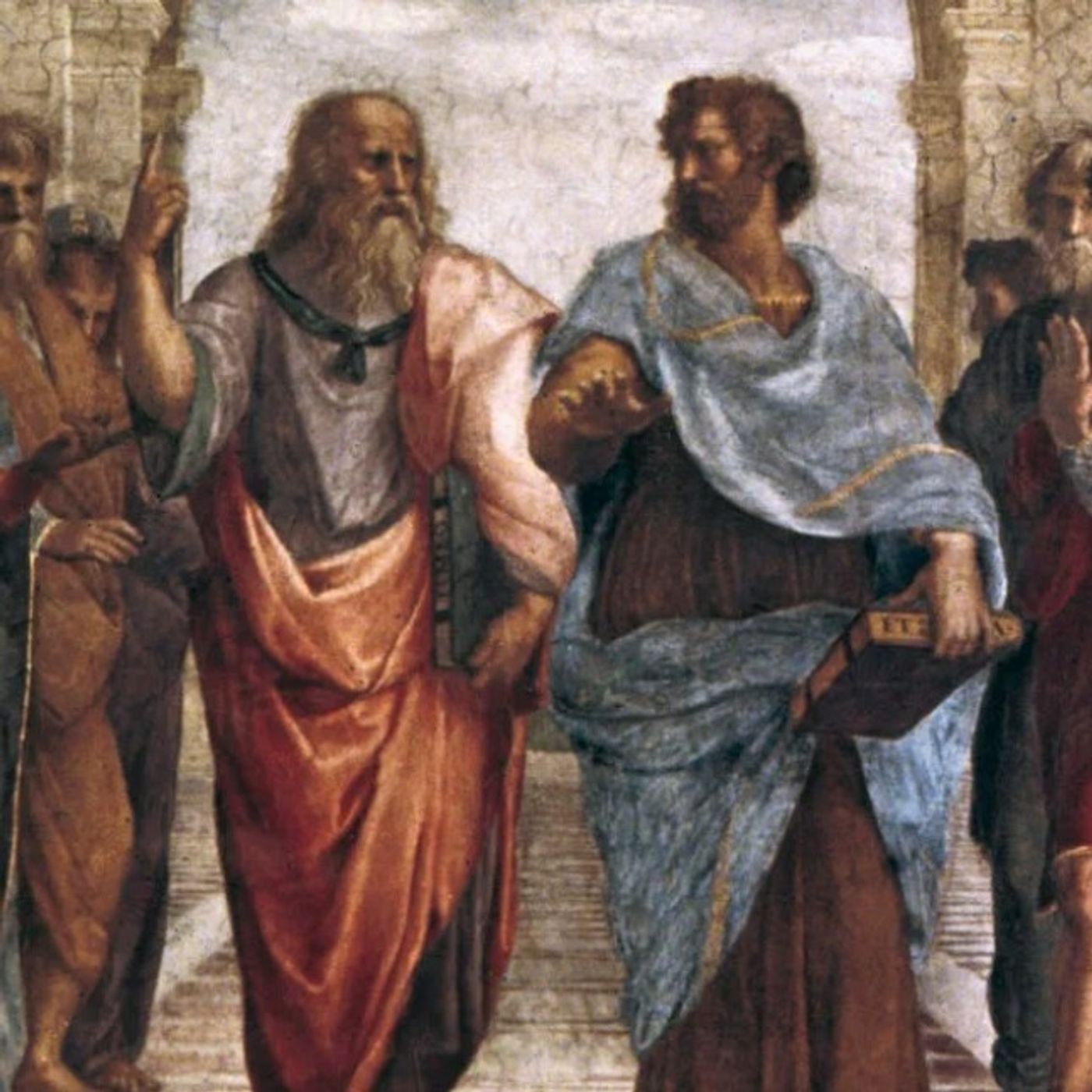
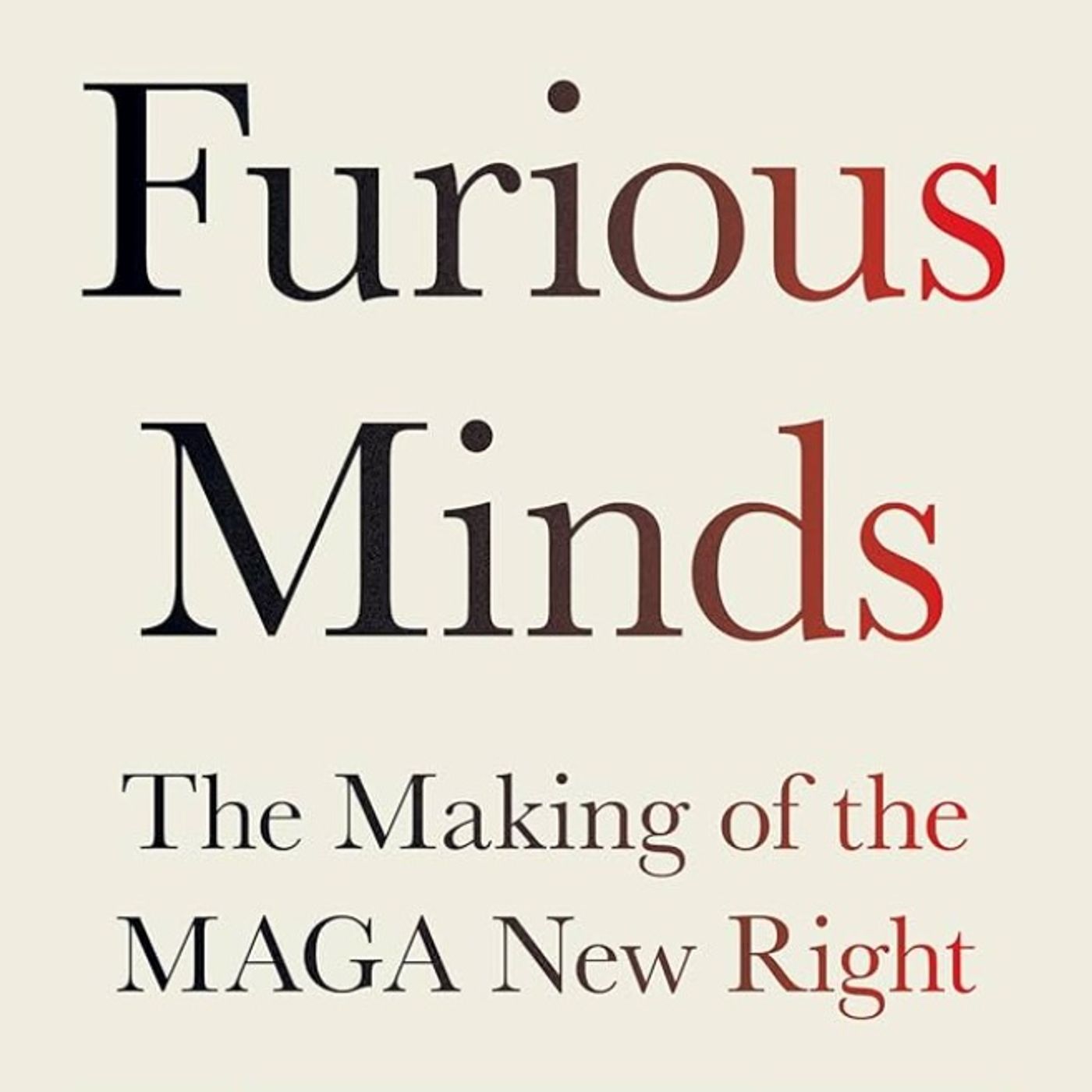
![Trump's Big, Beautiful Ballroom (w/ Kate Wagner) [Teaser] Trump's Big, Beautiful Ballroom (w/ Kate Wagner) [Teaser]](https://s3.castbox.fm/f8/a4/07/a1649705bb5d642f4f60b3e561a7ce91b6_scaled_v1_400.jpg)
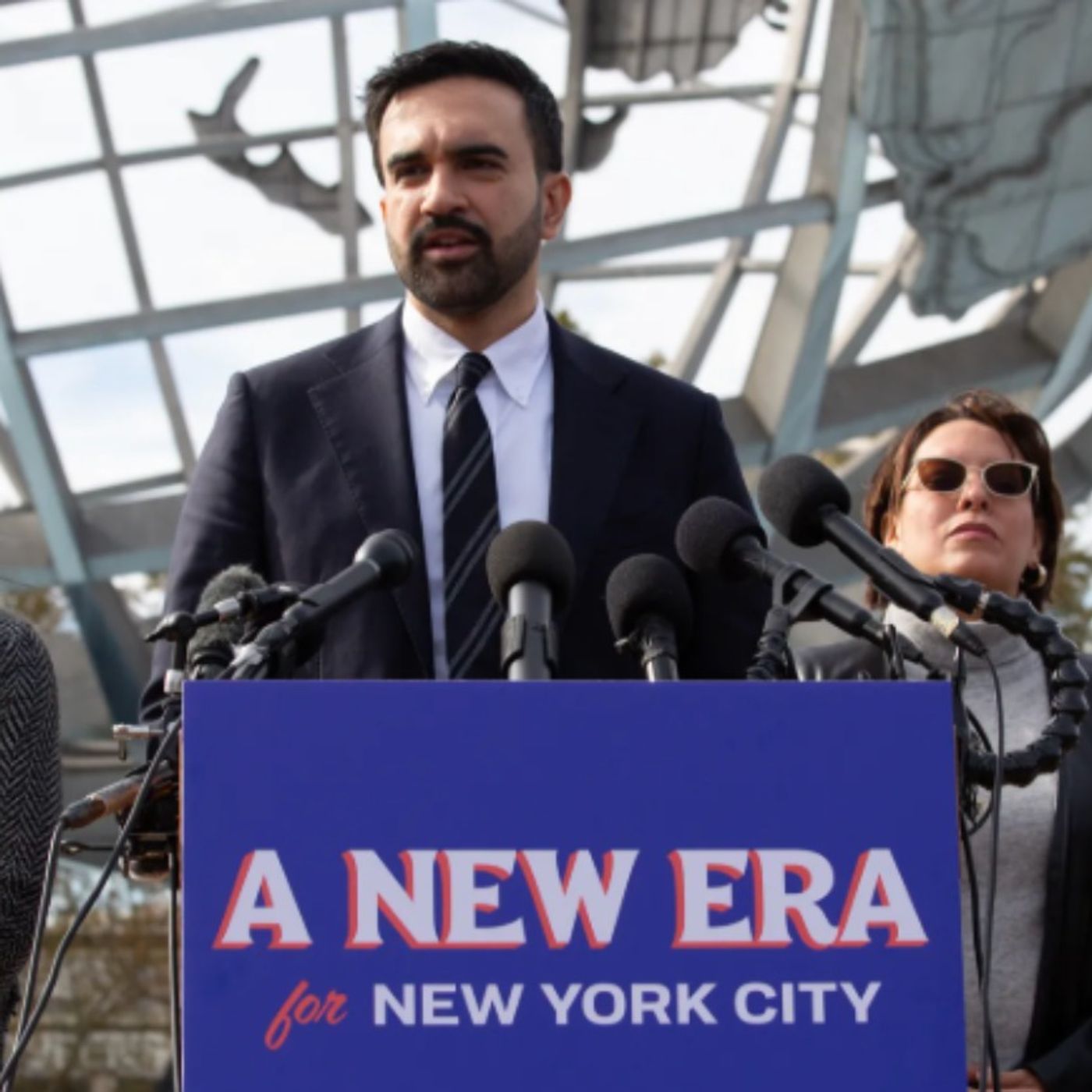

![Command + F + Hitler [Teaser] Command + F + Hitler [Teaser]](https://image.simplecastcdn.com/images/069ea67f-d4ba-403b-8e6e-790390cd5dfb/d0778314-f3b9-40df-8a14-68223c7a8c53/3000x3000/screenshot-202025-10-23-20at-203-56-08-e2-80-afpm.jpg?aid=rss_feed)
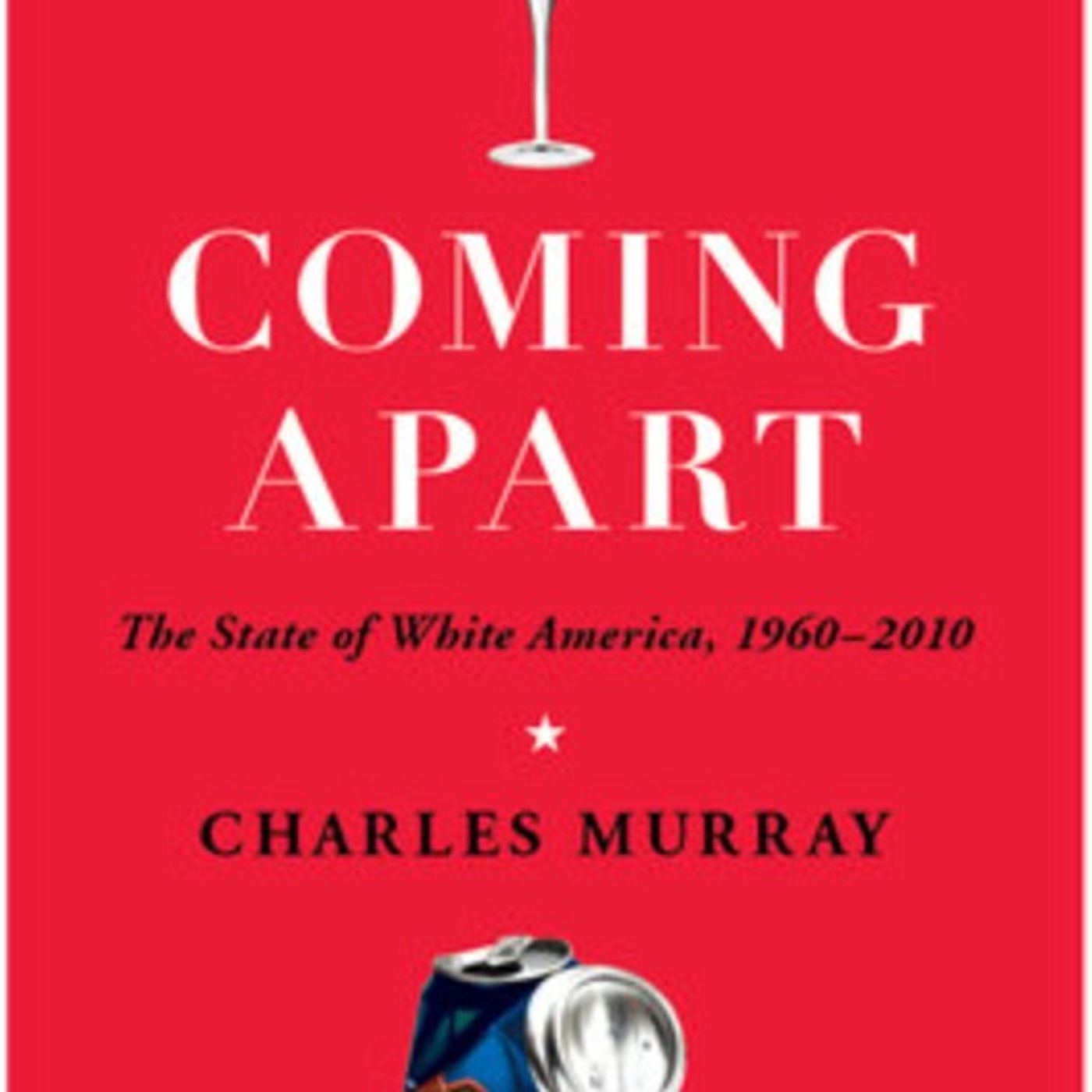
![How To Give A Damn [Teaser] How To Give A Damn [Teaser]](https://image.simplecastcdn.com/images/8bc39243-ac26-471f-b0f3-edf2b6b234f3/e3618da8-099b-405c-b33e-b034736fc397/3000x3000/arendt-smoking-classic-3x2.jpg?aid=rss_feed)

![The Assassination of Charlie Kirk [Teaser] The Assassination of Charlie Kirk [Teaser]](https://image.simplecastcdn.com/images/069ea67f-d4ba-403b-8e6e-790390cd5dfb/7e9d3253-bb29-4fb9-a961-789aedd5ec21/3000x3000/charlie-kirk-in-tampa-july-2025-cropped-jpg.jpg?aid=rss_feed)
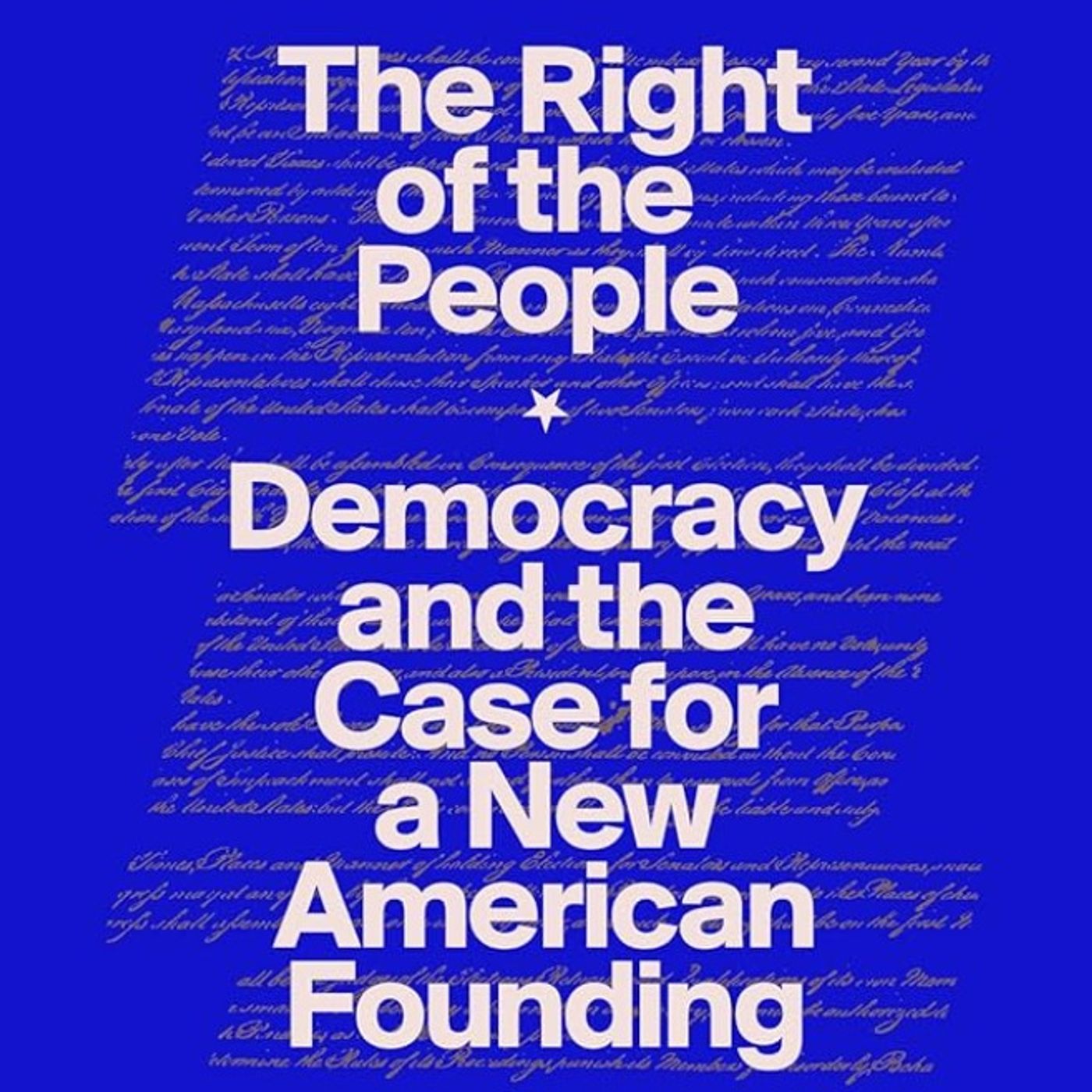
![An Officer and a Spy (w/ John Ganz) [Teaser] An Officer and a Spy (w/ John Ganz) [Teaser]](https://image.simplecastcdn.com/images/069ea67f-d4ba-403b-8e6e-790390cd5dfb/6ace134b-b326-4cd5-9232-a0f79e3480ec/3000x3000/officerandaspy.jpg?aid=rss_feed)
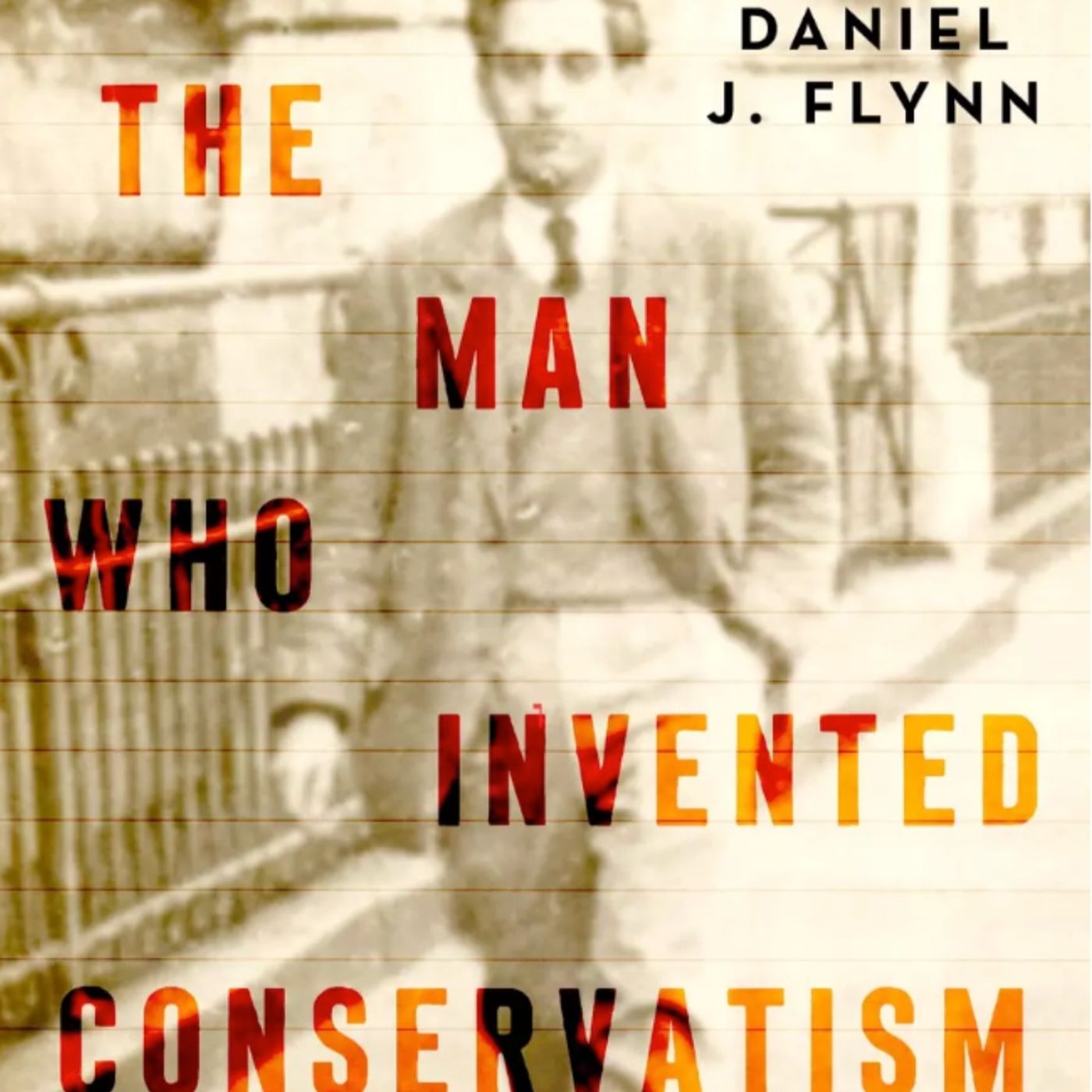
![The Christian Right's "Wild Faith" (w/ Talia Lavin) [Unlocked] The Christian Right's "Wild Faith" (w/ Talia Lavin) [Unlocked]](https://image.simplecastcdn.com/images/069ea67f-d4ba-403b-8e6e-790390cd5dfb/a821ddea-8b80-47f0-9763-b4b21557fbc3/3000x3000/tf3.jpg?aid=rss_feed)

![From Armageddon to Zionism — More Listener Questions [Teaser] From Armageddon to Zionism — More Listener Questions [Teaser]](https://image.simplecastcdn.com/images/069ea67f-d4ba-403b-8e6e-790390cd5dfb/30107b8c-ab55-4299-919d-85668b26bd62/3000x3000/hl2.jpg?aid=rss_feed)




You pieces of shit avoided "reckoning with Gaza" for as long as humanly possible. How's Fetterman doing, by the way?
Holy cow, although these guys seem generally sensible, they also seem waaaaaay too surprised by some of the things the Republicans have been doing. Like, dudes, I think we're far beyond the "I am dismayed by Trump's improprieties" vibes you're putting out. Anyway, welcome to the club; one demerit for tardiness. Also, journalists: INVESTIGATE and AUDIT the fucking ES&S voting-machine company of Traitorsville, USA.
Scored a 43 on the quiz. A decade in an Appalachian town of 9,000 definitely brought it up.
wow right wing douchebags can't even get history right.
Didn't you guys support a sub-mental caveman named John Fetterman to the hilt? But yeah, the entire Biden administration should be tried for the crime of genocide. Not that you ever really had a problem with that part.
this was lovely
Not listening to this dogshit but I wanted to swing by and congratulate you crypto-Zionist idiots on sucking Fetterman's creature dick so earnestly, now that he's packing his bags for the GOP.
let's not get ahead of ourselves,boys...
God her music is pure garbage why listen to Pop music, this is the worst episode they put out, Pop trash music is for morons.
I’m enjoying, if that’s the appropriate sentiment, the book The Reactionary Mind: Conservatism from Edmund Burke to Sarah Palin, by Corey Robin, Oxford University Press. Have either of you read it?
The lower down you go on the economic strata, the worse it gets? Fucking brilliant dude.
I'll be the first to admit that the Soviet Union was responsible for a lot of criminality but the worst thing they ever did was facilitate the superstardom of Chambers and the rest of the usual suspects.
I had a girlfriend leave me for a girl and it wasn't a big deal at all. This guy seems like a weiner.
What the hell is "trans political identity?"
An alien is about to pop out of Damon Linker's giant forehead and Felix Biederman correctly pointed out that he looks like an infant with two pussies for eyes.
Right wing and intellectual is an oxymoron.
Buckley mentored Ross Douthat... vigorously.
The left *doesn't* have an impact on American politics when it joins the Democratic Party you detached old fart.
He comes across as an absolute pigman in Exit Right, cheating on your wife and having retrograde notions about black people are wildly revolutionary, David.
David Horowitz is a completely undisciplined, erratic, unserious thinker but more importantly, he's actually pretty stupid. Ben Shapiro level hack.